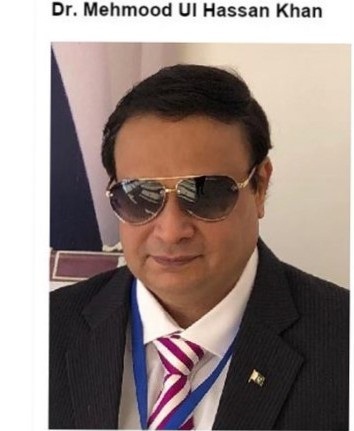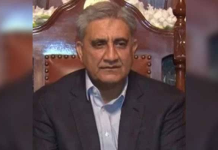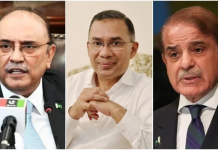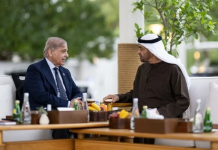Dr. Mehmood Ul Hassan Khan
Conflicting geopolitical and geostrategic realities have been haunting deserts and plains of the countries of Middle East and North Africa (MENA) due to which unfortunately, humanity remained at the receiving end.
MENA has been easy “prey” of complex and complicated proxies due to which its socio-economic prosperity, greater regional integration and sustainable development undermined. Caravans of “non-state” actors have been on the horses of social, ethnic and political marginalization and economic malaise for the last so many years. Now sanity seems to be prevailed and non-state actors will be dealt with iron hands with server sanctions too.
Most recently, the US has made a wise decision to designate Yemen’s Houthi rebels as a Foreign Terrorist Organisation (FTO) which has multiplier socio-economic, geopolitical and geostrategic implications for the MENA and beyond.
The US secretary of state, Mike Pompeo, announced the decision which has brightened the prospects of a stable Yemen. However, relief organisations greeted the news with dismay and termed it “pure diplomatic vandalism” which may disturb aid distribution channels in the struggling country.
The Houthis, officially known as Ansar Allah captured Yemen’s capital, Sana’a, in 2014, prompting President Abd Rabbu Mansour Hadi to flee. The rebels have been receiving financial and military support from Iran. On the hand, a Saudi-UAE led coalition of Arab nations have been fighting to just a cause of restoration of peace, harmony, economic development and last but not least, political stability in Yemen. Both countries have also been jointly working to restore the internationally recognised government.
The Houthis have siphoned off aid, routinely imprison and torture dissenters, and harass and detain humanitarian workers. The UN has termed it as the world’s worst humanitarian crisis killing more than 112,000 people and leaving most of the 30 million-strong population dependent on aid to survive. According to many regional NGOs and international organizations about 70 percent of Yemenis live in areas controlled by the Houthis, making them especially vulnerable to the new US sanctions. But humanity must not be left only to the mercy of Houthis for continuing blood baths.
They fear that malnutrition and outbreaks of disease such as cholera may be rampant are rife. The arrival of Covid-19 and western aid reduction in 2020 has driven what remains of Yemen’s healthcare system to the brink of collapse.
But Pompeo assured the UN and other Food/aid agencies would take appropriate measures such as issuing special licences by the US Treasury would allow US aid to continue to easy and smooth flow of aids and for humanitarian organisations to continue to work there.
Saudi Arabia also welcomed the move. On its part, the kingdom’s Foreign Ministry expressed its hope that the US designation would force the leaders of the Houthi militia backed by Iran to seriously return to the negotiating table. It hoped that it would prevent the group from staging more attacks. Being genuine promoter of the regional peace the Kingdom also expressed its readiness to work with relevant officials at the United Nations with international and non-government organisations and other international donors to topple any humanitarian issues.
The designation should be viewed as a tool to stop the Houthis’ deplorable behaviour while its application was not designed to harm relief and humanitarian operations, said Yemen’s Foreign Minister, Ahmed bin Mubarak.
“Indeed, it is intended to push the Houthis to end their machinations and compel them to genuinely pursue realising a secure and sustainable peace,” bin Mubarak said.
On its part, Yemen’s internationally recognised government also welcomed the US decision to designate the Iran-backed Houthi rebels and their leaders as global terrorists, effective from January 19. It is going to be imposed to hold Ansar Allah accountable for its terrorist acts, including cross-border attacks threatening civilian populations, infrastructure and commercial shipping.
Yemeni foreign ministry spokesman further added that the rebels have led a brutal campaign that has “killed many people, continues to destabilise the region and denies Yemenis a peaceful solution to the conflict in their country.
Yemen’s Minister of Information, Muammar Al Eryani, said that opposing a designation would be “a shortcoming in realising the Houthi tenets and creed, which is based on murder and terrorism.
He urged to regional as well international community to revise their adverse opinions about the US sanctions and do not ignore the will of the Yemeni people who have been raising their voices for weeks calling for the Houthis to be designated a terrorist organisation and to be sanctioned internationally.
Three Houthi leaders Abdul Malik al-Houthi, Abdul Khaliq Badr al-Din al-Houthi and Abdullah Yahya al-Hakim will also be listed as Specially Designated Global Terrorists.
It seems that the US designations are also intended to advance efforts to achieve a peaceful, sovereign, and united Yemen that is both free from Iranian interference and at peace with its neighbours.
The secretary of state termed targeting the airport in the southern city of Aden on 30 December, in which 27 people were killed as “callous attack”. Yemen’s foreign ministry said it supported the move and called for further “political and legal pressure” on the Houthis.
The UAE Minister of State for Foreign Affairs, Dr Anwar Gargash, praised the decision and welcomed the US administration’s decision to classify the Houthi militia as a terrorist organisation, and to place its leaders on terrorist lists.
He upheld that the Houthi militia’s coup remained violent against the state and its institutions, and the Yemeni society and its social and civil fabric, sparked violence and chaos and led to the tragic deterioration of the humanitarian situation in brotherly Yemen.
Being prominent regional expert of the GCC & MENA I fail to understand why the UN and other global food and agencies are opposing the US designations against Houthi militias to stop ongoing spells of horrendous crimes against humanity. On ground, weaker factions and various communities have been on the mercy of Houthi militias and thus provoking terrorism in different parts of Yemen.
I plead that the imposition of the US sanctions and the classification of the Houthi militia as a terrorist group must be viewed as a wise cumulative step for the efforts of the international community and many countries led by the Saudi Arabia, to support the transitional phase in Yemen from 2011 until 2014. The Houthi militias participated in the comprehensive national dialogue that lasted for 10 months, in which the Yemenis developed solutions and processes for each Yemeni issues, including the Saada issue.
With the help of Saudi Arabia and international community/stakeholders the work on writing of the Yemeni constitution has been started. However, the Houthi militias, as usual, did not abide by this and turned against more than 70 agreements of the Yemeni government, local authorities, tribes and the United Nations.
They even committed all kinds of terrorist acts such as killing, bombing houses, child recruitment and forcing them to battlefields. They continued to launch missiles and drones, randomly, targeting civilians in Yemen and threatening international shipping and energy sources in the Gulf region. As well as their ideological extremist discourse that calls for violence and spreading hatred, as they clearly declare this.
Since the Houthi militia coup, the international efforts of the United States of America and the European Union have relied on diplomacy without any means of pressure on the Houthi militias who exploited this in order to continue the war and without seriously getting involved in the political process.
It seems that the US sanctions would support the existing political efforts and force the Houthi militia leaders to engage in serious peace negotiations, and to oblige the Houthies to implement any agreement they signed. Ultimately it will marginalize the Houthi militia’s financial resources after businessmen stop the ongoing commercial participation with the Houthi leadership.
Yemen is another extension of Iranian proxies in the region which forced the other regional countries mainly Saudi Arabia and the UAE to counter it since 2015. Now Iran has acquired a non-state ally in the Arabian Peninsula along with a base to threaten the Bab el-Mandeb, the strategic waterway that links Europe to the Indian Ocean. Iran-Houthis trans-regional alliance has put the regional energy and food security at risk due to which regional socio-economic prosperity has further weakened and deteriorated.
I conclude that so called civilized world and preachers of peace and stability should not forget Houthis horrendous crimes against humanity. Let us hope that sanity may prevail to put again the MENA & Yemen on the path of political stability, economic sustainability and social cohesion.
Yemen is dire need to develop national consensus against terrorism and its foreigner promoters, Iranian schemers and executers to achieve the desire goals of immense socio-economic prosperity, and regional energy and food cooperation. Let us shun power politics of hegemony, horrendousness, brutality, blasts, conspiracies, conflicts and contradictions to rescue the dying children, women and elderly Yemenis from the clutches of Houthis to live a decent life.

















